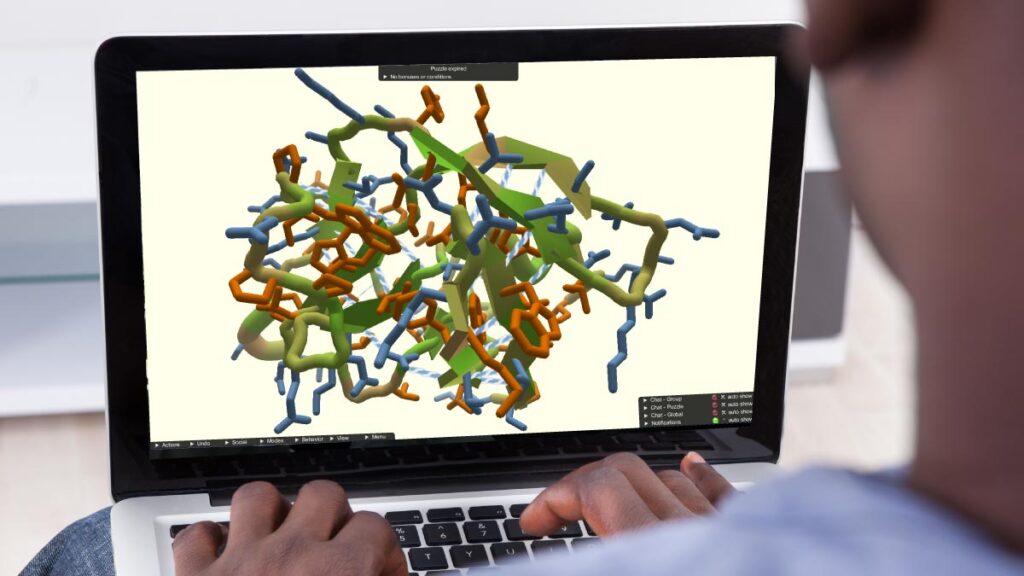
The functionality of video games has long been expanding beyond just entertainment and storytelling for a while now. Gamification in medical treatment, education and training, and therapy are becoming increasingly commonplace.
Researchers from University of Washington’s Institute for Protein Design are using a free online protein puzzle game called Foldit to figure out how to block COVID-19 spike proteins, the structures which allow the virus to recognize, latch, and infect healthy cells.
Proteins, outside of a dietary context, are simply complex structures of amino acids that when folded in certain ways, unlock a myriad of cell functionalities. Whether it is forming human fingernails or changing color for camouflage to hide from predators such as chameleons or emitting fluorescent light as with angler fish.
The protein puzzle game, created at UW’s Center for Game Science more than ten years ago, gives players the ability to twist, fold, and contort protein structures in all sorts of ways trying to find a way to block the spike-proteins.
“Foldit attempts to predict the structure of a protein by taking advantage of humans’ puzzle-solving intuitions and having people play competitively to fold the best proteins,” the game company explained, adding that “since proteins are part of so many diseases, they can also be part of the cure. Players can design brand new proteins that could help prevent or treat important diseases.”
From a pool of hundreds of thousands of players, the most promising results are manufactured and tested in labs and universities; but the game isn’t a miracle “cure generator.”
Taking the 3D representation of an anti-viral protein and turning it into an actual vaccine or treatment takes time, funding, and specialized individuals, facilities, and tools.
According to UW Biochemist, Brian Koepnick, “protein binder design is a very hard problem – one at the forefront of computational biology – and there are other physical factors that are difficult to account for.”
“Even if our metrics look good on paper or on a computer, only laboratory testing will tell us whether these designer proteins actually fold and bind to the target,” Koepnick wrote.
For those who wish to contribute to the global efforts in fighting the virus, you can do so from your home. Foldit has puzzles available to solve, with more on the way.